If Ever There Were an Essential Service Provider, PETA’s Field Team Is It
Update: May 18, 2020
What do a tethered king, an ailing queen, Zeus without his palace, and a goose with a broken wing all have in common? Our field team was there for them when no one else was.
In just the last week, our fieldworkers helped several animals, such as King, a little dog who was tethered outdoors when we found him. Now, thanks to the efforts of our “miracle workers,” he’s sitting on his throne at the Virginia Beach SPCA (one of our wonderful placement partners) awaiting adoption.
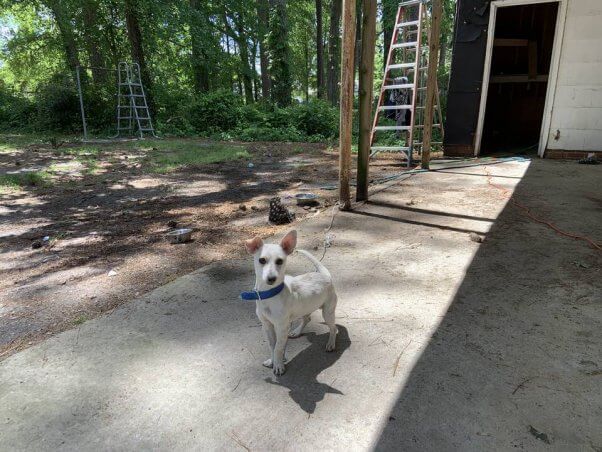
Our field team heroes also came to the aid of Queen, a crated pit bull suffering from a prolapsed uterus—an extremely painful and life-threatening condition. She was mercifully released from life in order to end her suffering.
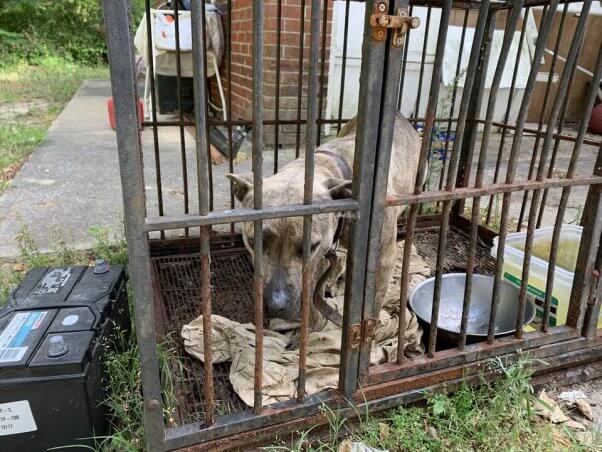
And then there’s Zeus, who (like all dogs) deserves a Mount Olympus–worthy palace. Our fieldworkers replaced his inadequate shelter …
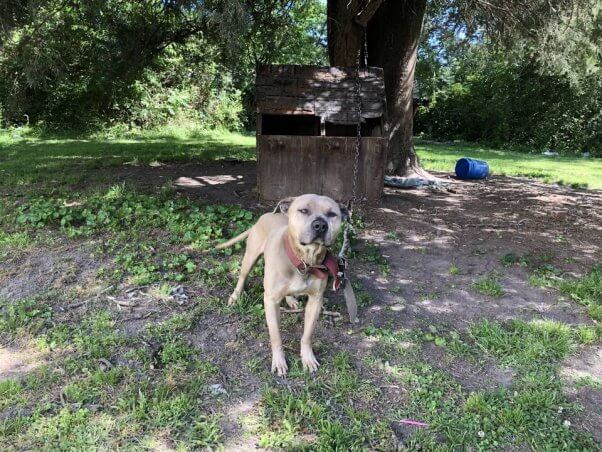
… with a sturdy, custom-built PETA doghouse (something we’re able to do thanks to donations from kind mortals like you).
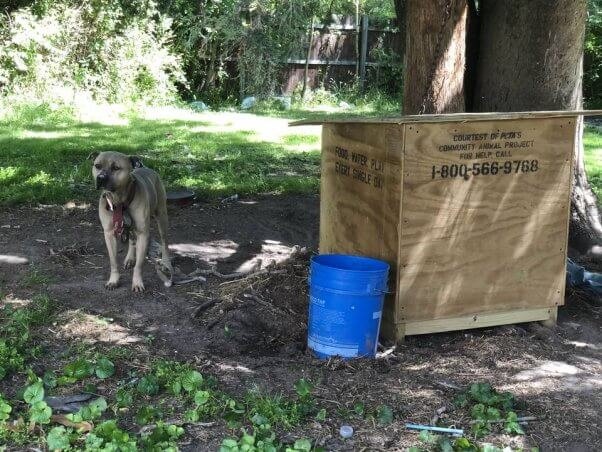
We also transported 16 animals this week—including Belle, below—to and from their spay or neuter appointments, all free of charge. As you can see, Belle and her guardian are quite happy that she won’t be breeding and bringing more animals into a world that’s already short of homes—plus, sterilized animals live longer, happier lives!
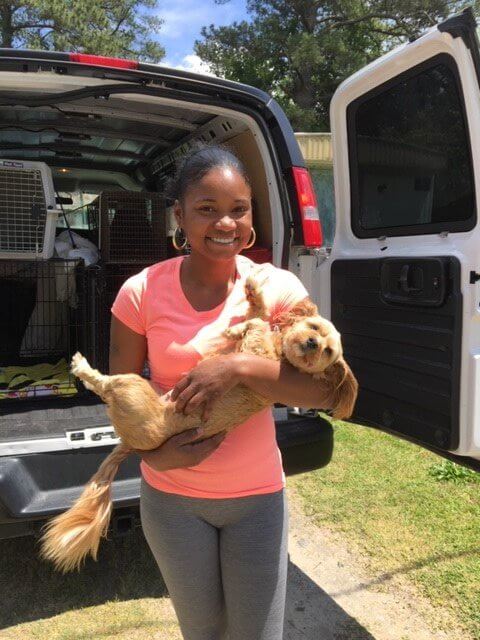
Thanks to a carefully planned and coordinated team effort, we also rescued this injured but mobile goose who had sustained a broken wing and was hanging around a mostly closed government construction site. We transported him to a nearby veterinary hospital so that he could receive expert assessment and care.
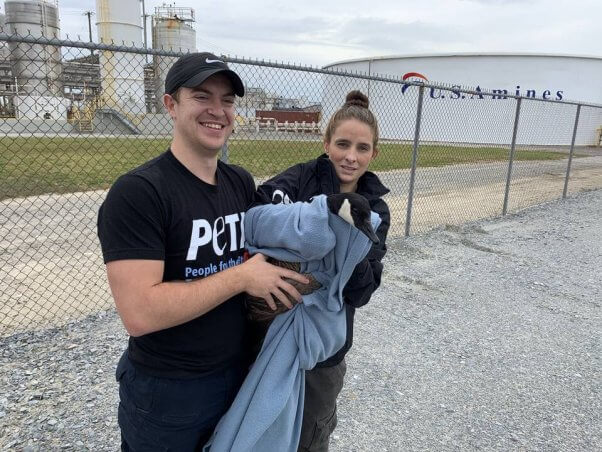
One of our fieldworkers also got a shout-out from the Danville Area Humane Society (another of our placement partners) after transferring six nursing cats and their kittens as well as a sweet Labrador mix to the Virginia Beach SPCA, where they’ll have a chance at adoption.
If you’re a diligent, hardworking, kind, professional, and physically able individual—and if saving animals like it’s your job sounds like your cup of tea—please consider applying to become part of our essential field team.
Update: April 28, 2020
Without PETA’s field team, what would’ve happened to Reggie, a caged, scared pup whose owner simply didn’t want him anymore?
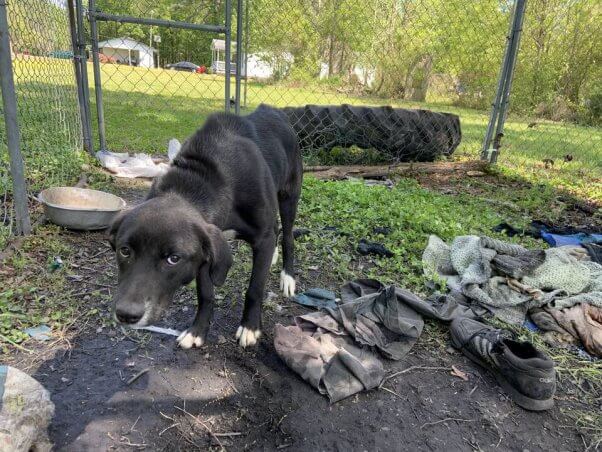
Reggie’s former owner called PETA, hoping to surrender him—and, despite the COVID-19 crisis, our fieldworkers responded. Once in their capable, loving hands, it didn’t take long for shy Reggie to warm up and come out of his shell. After giving him some TLC, we transferred him to one of our wonderful placement partners, the Norfolk SPCA, where he awaits adoption.
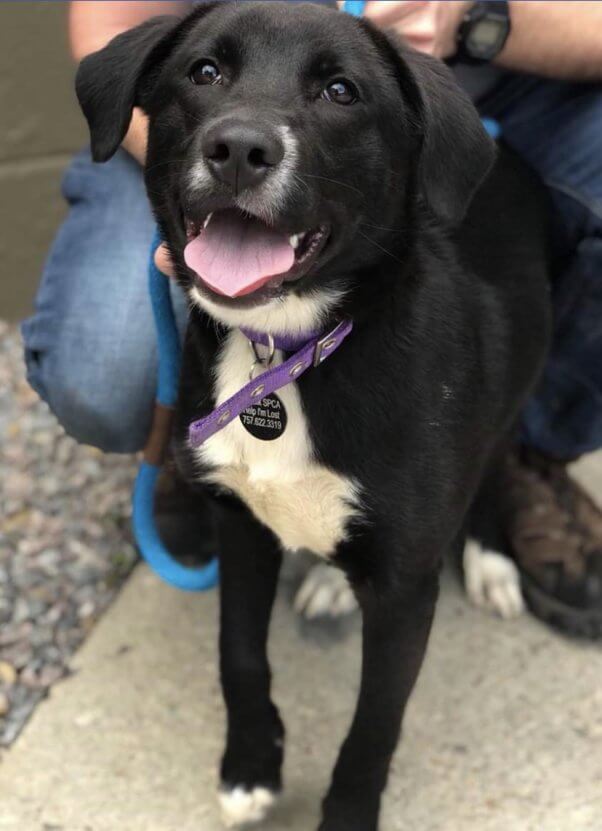
The coronavirus crisis is sparking lots of discussion of “essential businesses” and “essential workers.” If ever there were an essential service provider, our field team is it. Without it, BeeGee would’ve been forced to continue enduring a severe ear infection, which left his ears bloody and painful. Instead, we transported him to one of our mobile clinics, where his infection was treated and he was neutered—all totally free of charge for his low-income family.
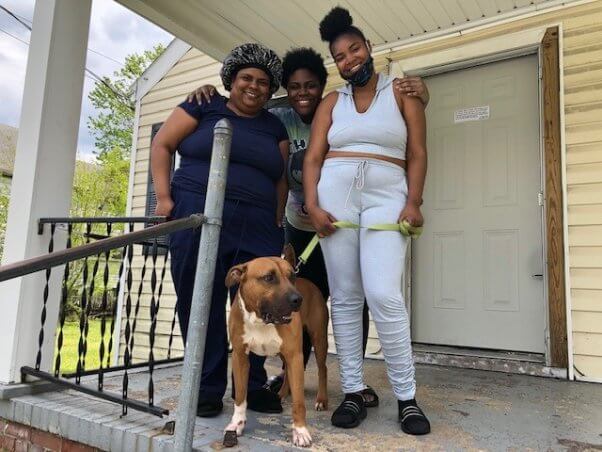
Star—who we’d previously spayed at no cost to her owner—received a sturdy new custom-built PETA doghouse to replace her flimsy plastic shelter.
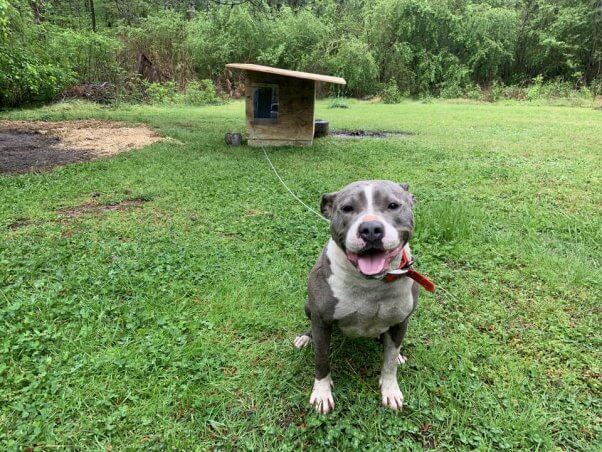
Our fieldworkers gave Snowball—a chained, neglected, and severely matted dog—a much-needed shave-down just in time for the summer.
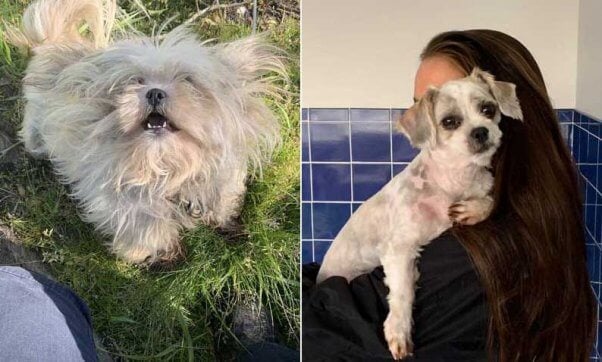
We also rescued six dogs in Halifax County, North Carolina, who were confined to a small, dirty, barren pen. We transferred the adorable family (two adults and four puppies) to our other placement partner, the Virginia Beach SPCA, for a chance at adoption.
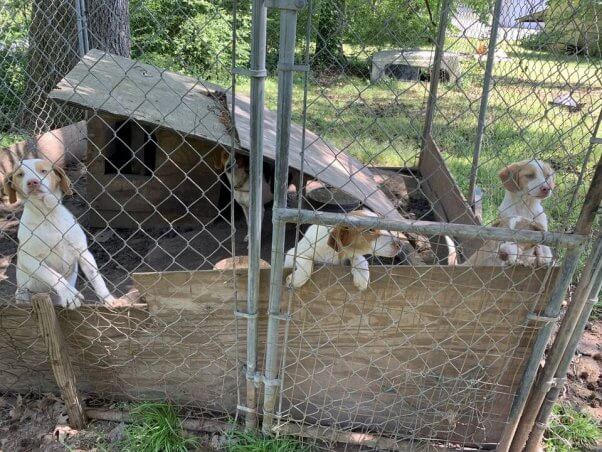
An elderly, emaciated Chihuahua named Yodi was brought to PETA for end-of-life help after her guardian passed away. Yodi was suffering from a mammary tumor, severe hair loss, a painful dry eye, and a skin infection. We freed the sweet pup from her pain, free of charge.
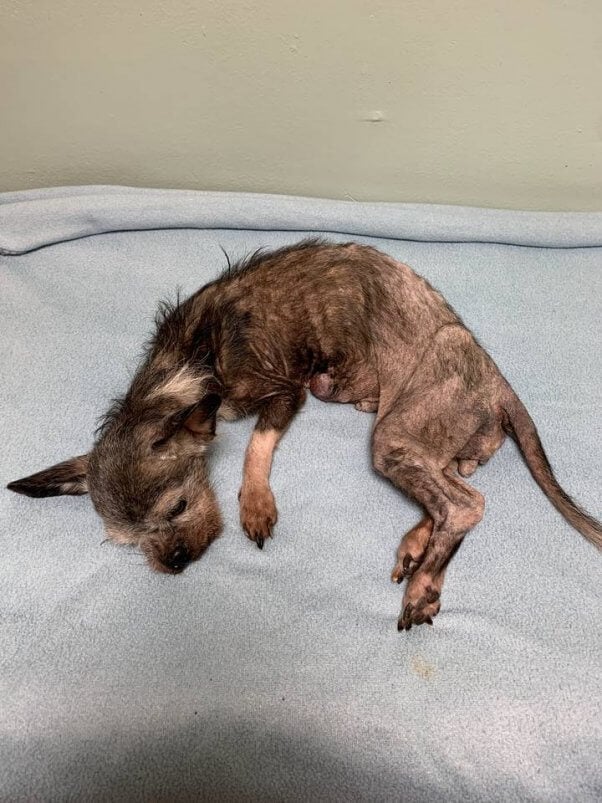
After a good Samaritan found a severely bloated hamster trapped in a cage near a dumpster, he took her home, thinking she might be pregnant. He quickly realized that she was in critical condition and brought the blind, dying hamster to PETA so she could be released from her suffering.
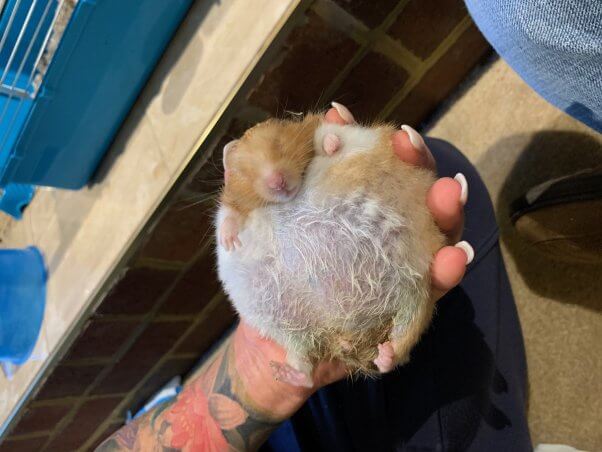
These animals are just a few of those PETA’s fieldworkers have helped during the last week alone. And our staff will continue to visit hundreds of animals each week, despite the COVID-19 pandemic (while taking every precaution recommended by health authorities, of course—including practicing social distancing, wearing gloves, frequently washing hands, and disinfecting surfaces often).
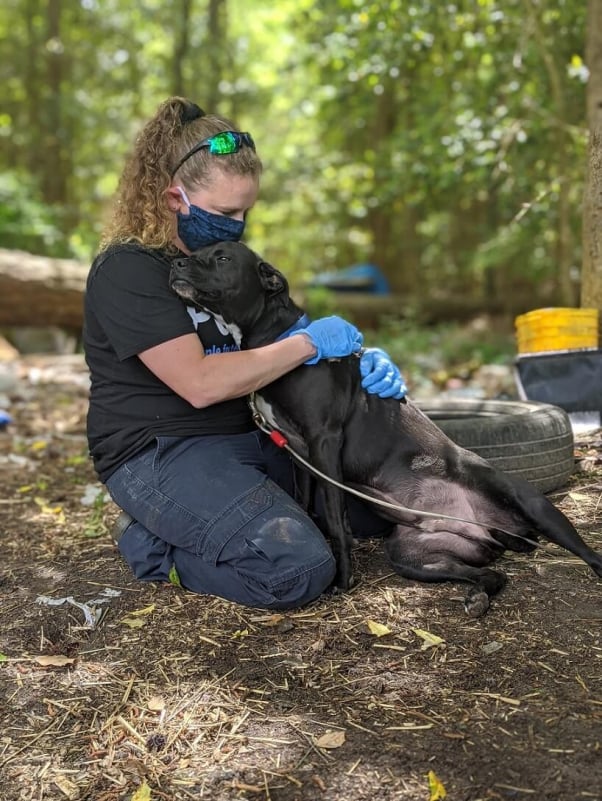
Click below to learn more about our available fieldworker position if this vital team sounds like one you’d like to join:
Update: April 15, 2020
The COVID-19 pandemic is leaving families struggling to put food in the bowls of the beloved dogs and cats they share their homes with. Our fieldworkers are doing all they can to ensure that none of these animals go hungry, but we need your help.
Please, if you have the means, drop off sealed bags of animal food in the donation box located outside The Sam Simon Center—our headquarters in Norfolk, Virginia—or, if you’re elsewhere in the world, consider shipping dog or cat food to this address:
PETA
Attn.: Community Animal Project
501 Front St.
Norfolk, VA 23510
Any type or brand of food is accepted and appreciated—the hungry dogs and cats we serve aren’t picky! Alternatively, click below to make a monetary donation, which will go toward ensuring that these animals don’t go without food.
The “miracle workers” on our field team will be sure to put your kind donations to good use. Check back for updates about the animals who have been helped thanks to your support.
Update: April 7, 2020
There’s no working from home for the “miracle workers” on PETA’s field team. While staying at least 6 feet away from animals’ human guardians, our fieldworkers are still heading out—as they do all 365 days of the year—to low-income communities, where they get up close and personal with dogs whose whole lonely lives are spent chained in the far reaches of a backyard.
Here are a few of the animals PETA has helped in recent days:
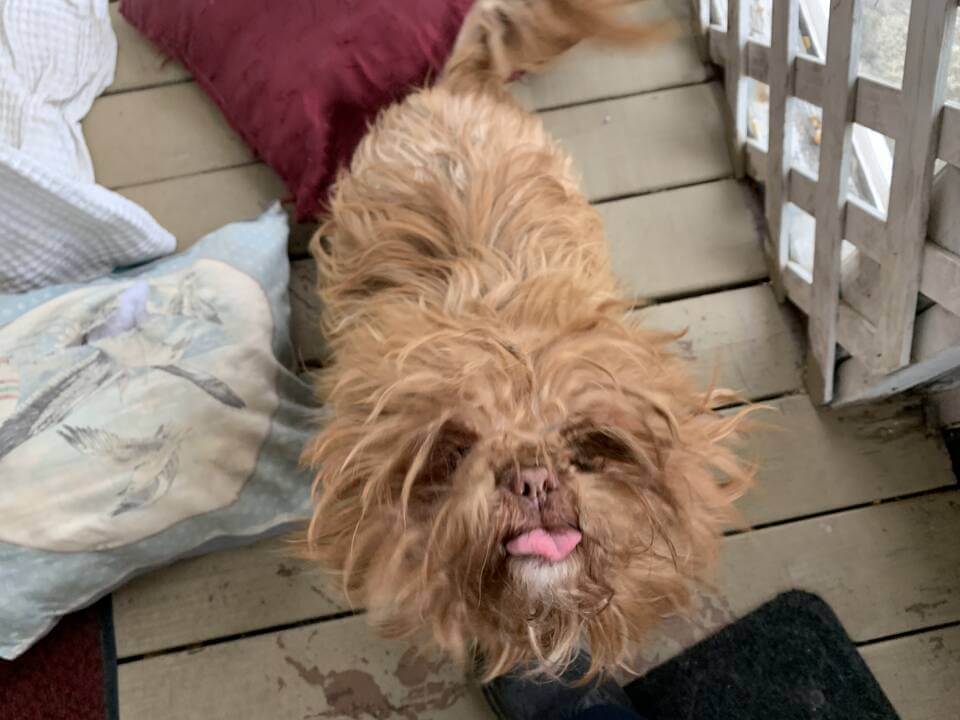
Brownie, seen above, had a badly matted coat that was pulling painfully at his skin. We gave the sweet pup a desperately needed haircut, providing him with some relief at last.
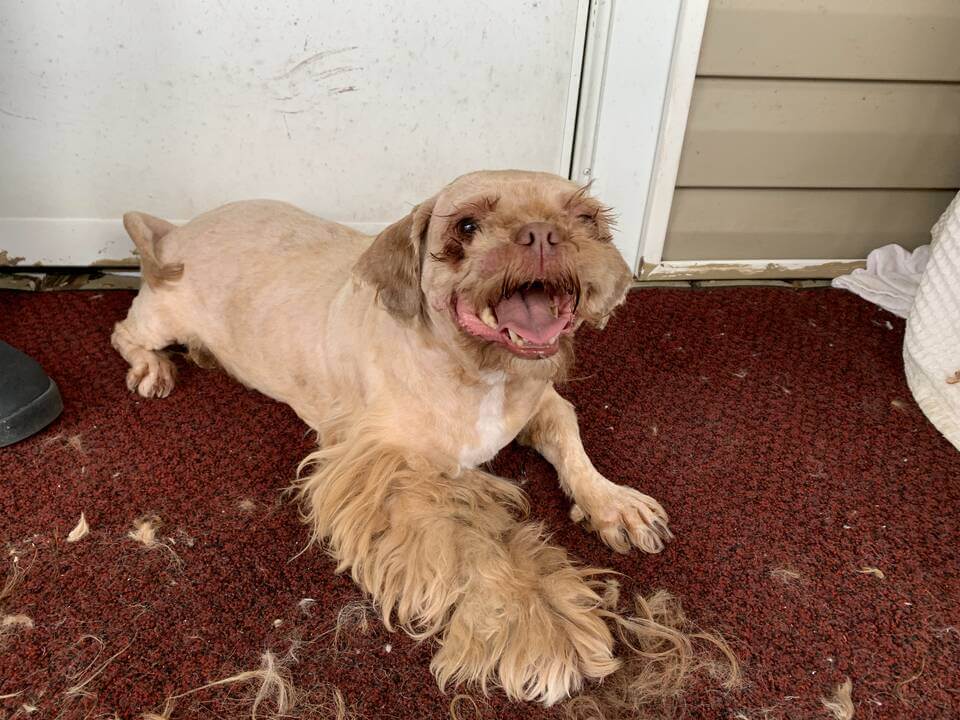
And then there was Luna …
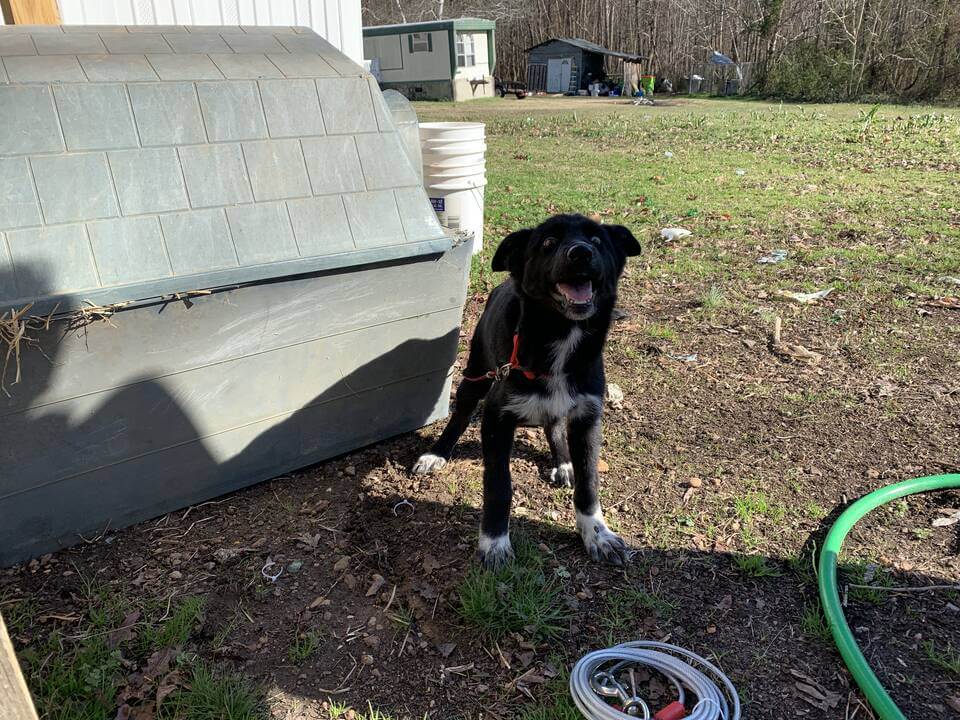
… who, after being constantly tethered up outside, was surrendered to PETA after her owner had a heart-to-heart talk with our fieldworkers—they explained how much dogs crave affection and need to run and play.
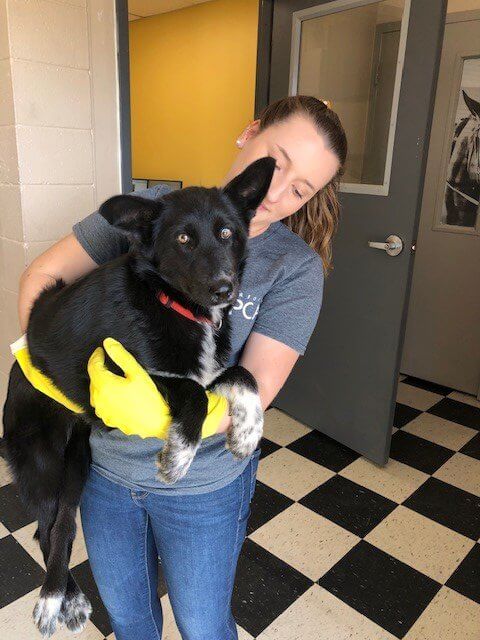
We provided Casper with a sturdy new doghouse …
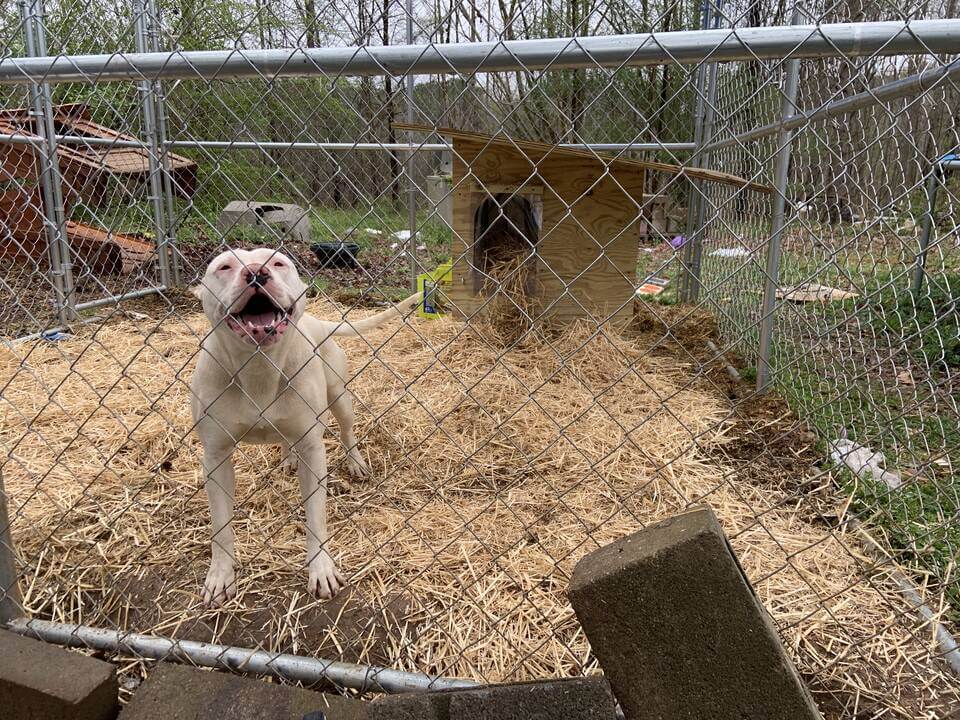
… and Boe—a severely emaciated pit bull who was wracked with cancer—was given a peaceful release from his suffering.

Worried that some people are having a hard time making ends meet and feeding their animals, we also donated 100 bags of dog and cat food to the Foodbank of Southeastern Virginia and the Eastern Shore on April 2.
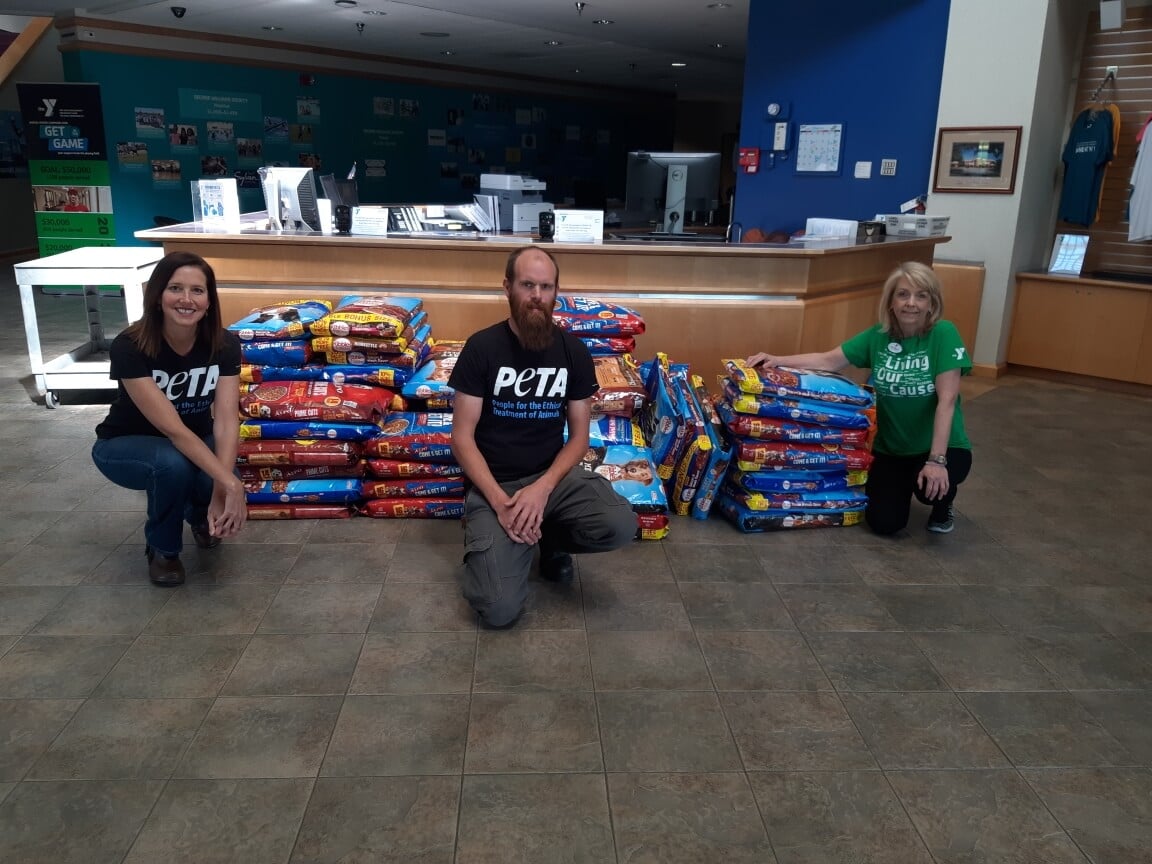
As long as there are cats and dogs out there who need help, we’ll continue to do our best to assist guardians who have fallen on hard times. Anyone in southeastern Virginia who wants to help can make a world of difference by dropping off sealed bags of animal food in a donation box located outside the Sam Simon Center—our headquarters in Norfolk, Virginia (located at 501 Front St.). Those elsewhere in the U.S. who have the means can click below to donate dog or cat food to our rescue team electronically—our fieldworkers and the animals they help (whose families are struggling to feed them) will be forever grateful.
Update: March 26, 2020
If ever there was an essential service provider, PETA’s field team is it! Our fieldworkers aren’t letting COVID-19 stop them from helping animals—so they’re taking every precaution recommended by health authorities (including practicing social distancing, wearing gloves, frequently washing their hands, and disinfecting surfaces often) while giving animals the attention and care they desperately need. Take Princessa, for example: We transported this sweet pup to and from her free spay appointment on PETA’s mobile clinic.
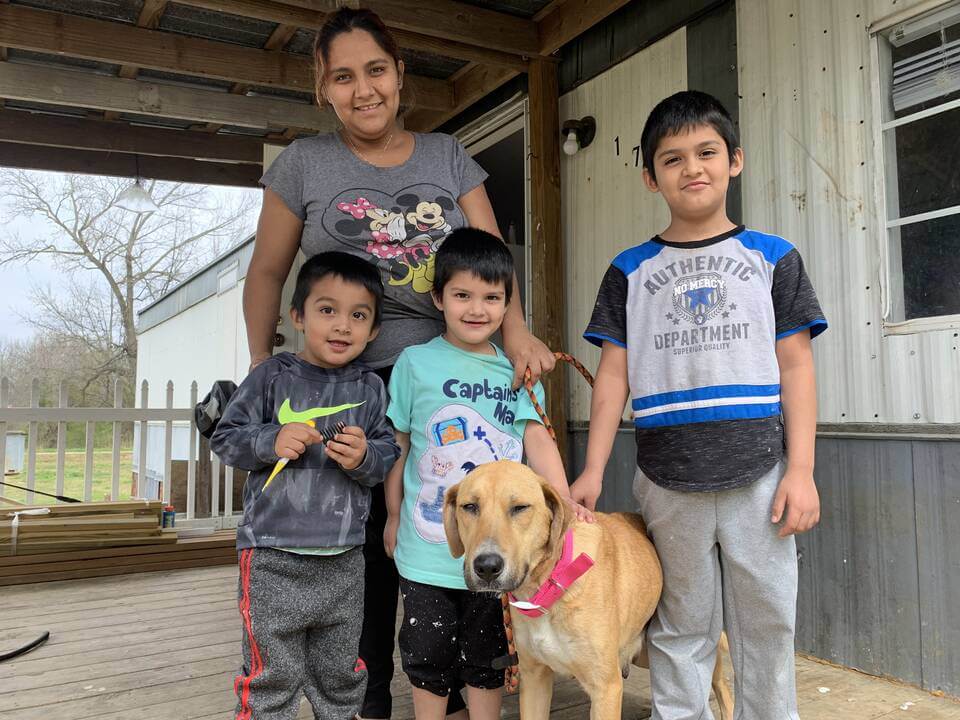
We also replaced Boss’ dilapidated shelter with a sturdy wooden doghouse.
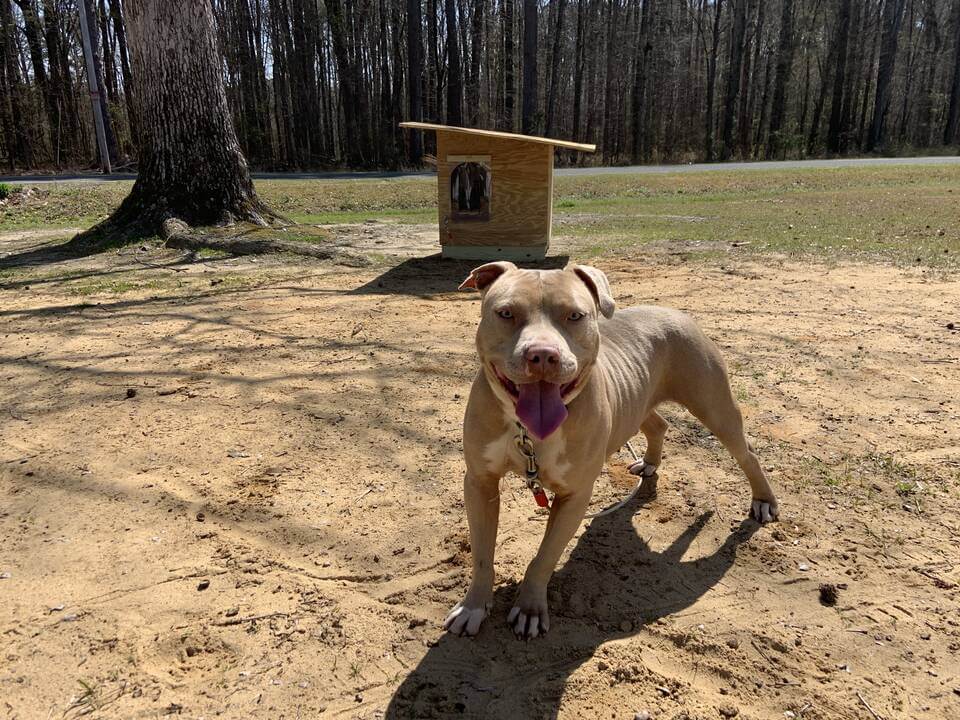
Our fieldworkers found Mary Puppins tied to an overturned garbage can in rural North Carolina. Her owner agreed to let us take her, and she was transferred to our local placement partner—the Virginia Beach SPCA—where she awaits a loving home.
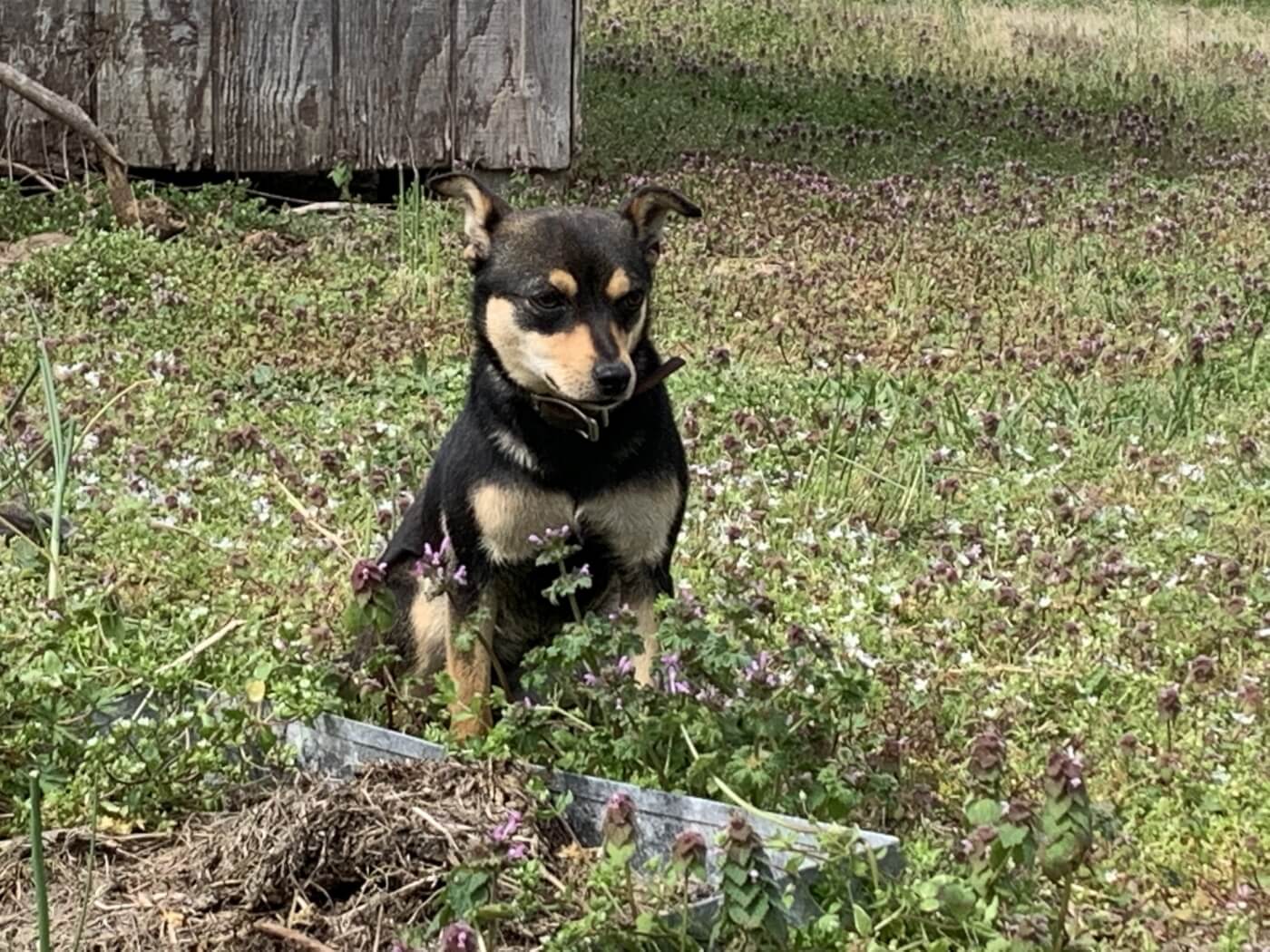
And then there was Missy, who was suffering from end-stage liver failure. She was emaciated, jaundiced, vomiting blood, severely dehydrated, barely able to lift her head, and struggling to breathe. Her elderly owner had contacted several veterinarians and animal shelters but couldn’t find help because of COVID-19 shutdowns. But someone referred her to us, and we were able to give Missy a peaceful release from her suffering.
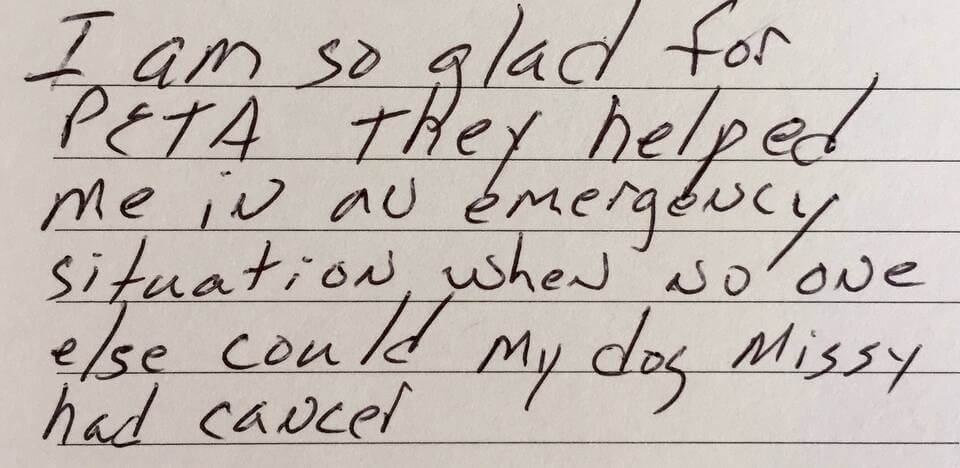
Keep reading to learn more about PETA’s work during this trying time and what we can do to keep our animal companions safe during the COVID-19 outbreak.
Originally published on March 19, 2020:
Despite the COVID-19 crisis and the many disruptions and health precautions that we’re all faced with now, PETA’s groundbreaking work to help animals—including emergency response, cruelty casework, homeless-animal assistance through spay/neuter, research, investigations, and new outreach strategies in lieu of being on the streets—isn’t slowing down!
We’re still here on the job, actively helping animals 24 hours a day, seven days a week.
We’re out there right now—as we’ve always been—providing animals in deeply impoverished families with free medical care, food, and even proper shelter. Take Wayne, for example. Until just a few days ago, this senior poodle mix was suffering chained up in cold weather.
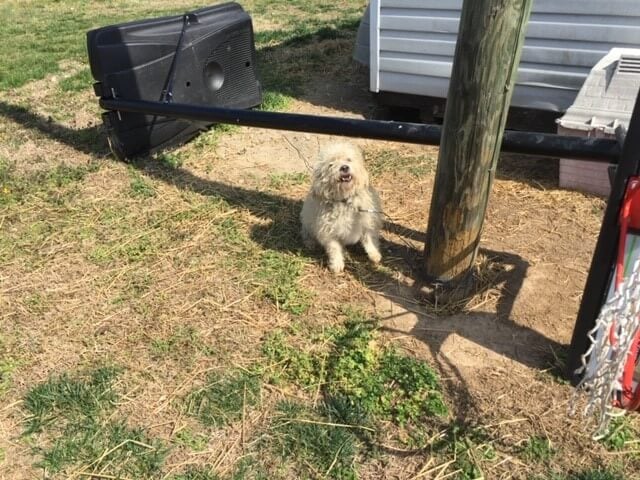
Today, thanks to support from you and other kind PETA members, he is rid of all that matted fur and is enjoying loving care. And he’s looking for a new home.

In just the last week, you helped us respond to 174 emergency calls for assistance and sterilize 235 animals (including 17 pit bulls, the most abused breed of dog). Because of the financial toll that the pandemic is taking, we expect the need for these services to grow.
As we have seen during other crises, such as hurricanes, floods, and past recessions, animals and their needs are becoming part of the pandemic’s casualties.
Never fear, however—PETA will not miss a beat. We’ll continue full steam ahead to keep pressure on corporations that abuse animals. This week, feeling the heat from more than 250,000 PETA supporters, Chrysler put the brakes on its connection with the Iditarod, sending the message that dogs deserve better than being run to death for mushers’ prize money.
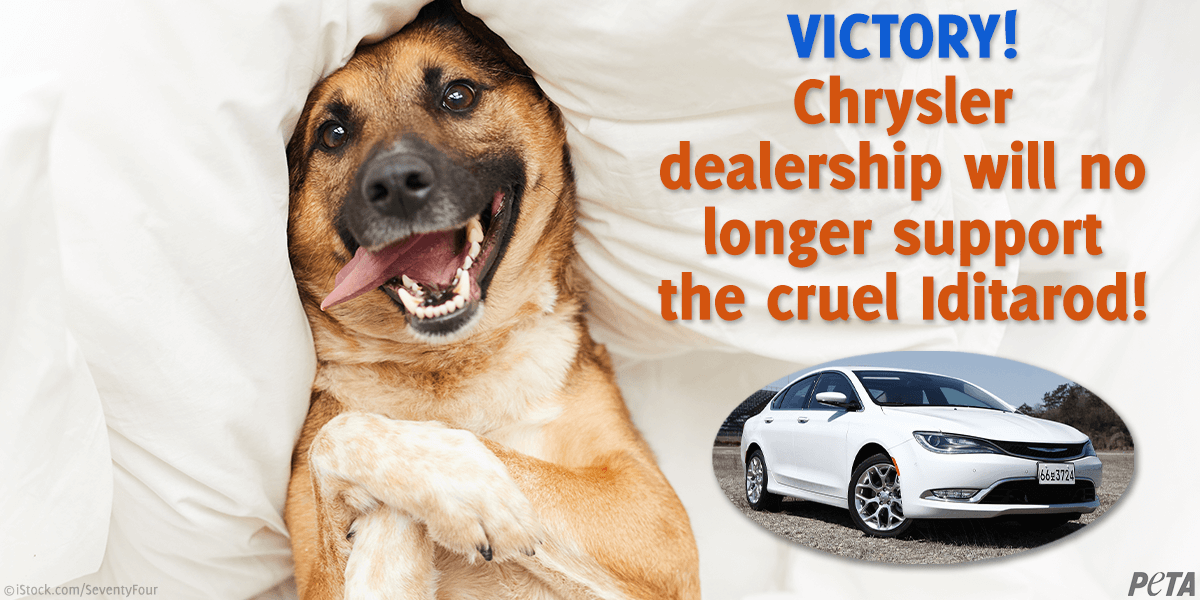
You may recall that earlier this month, we got Alaska Airlines to withdraw its sponsorship of this wretched race in which over 150 dogs have died, and we’re determined to end it.
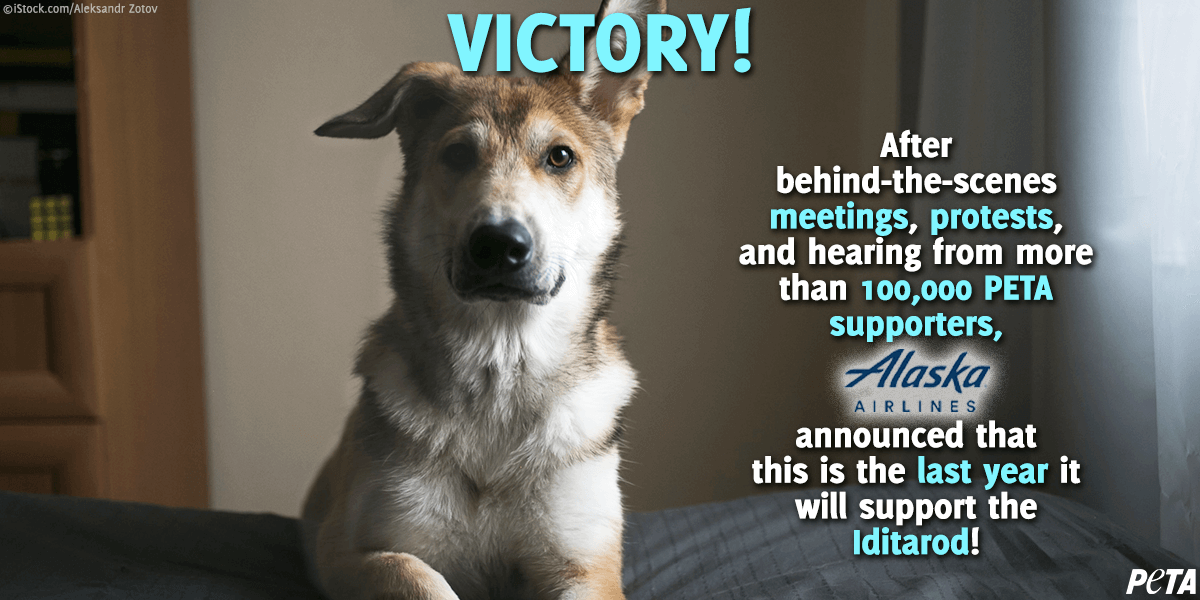
Whether freeing a dog from a chain …
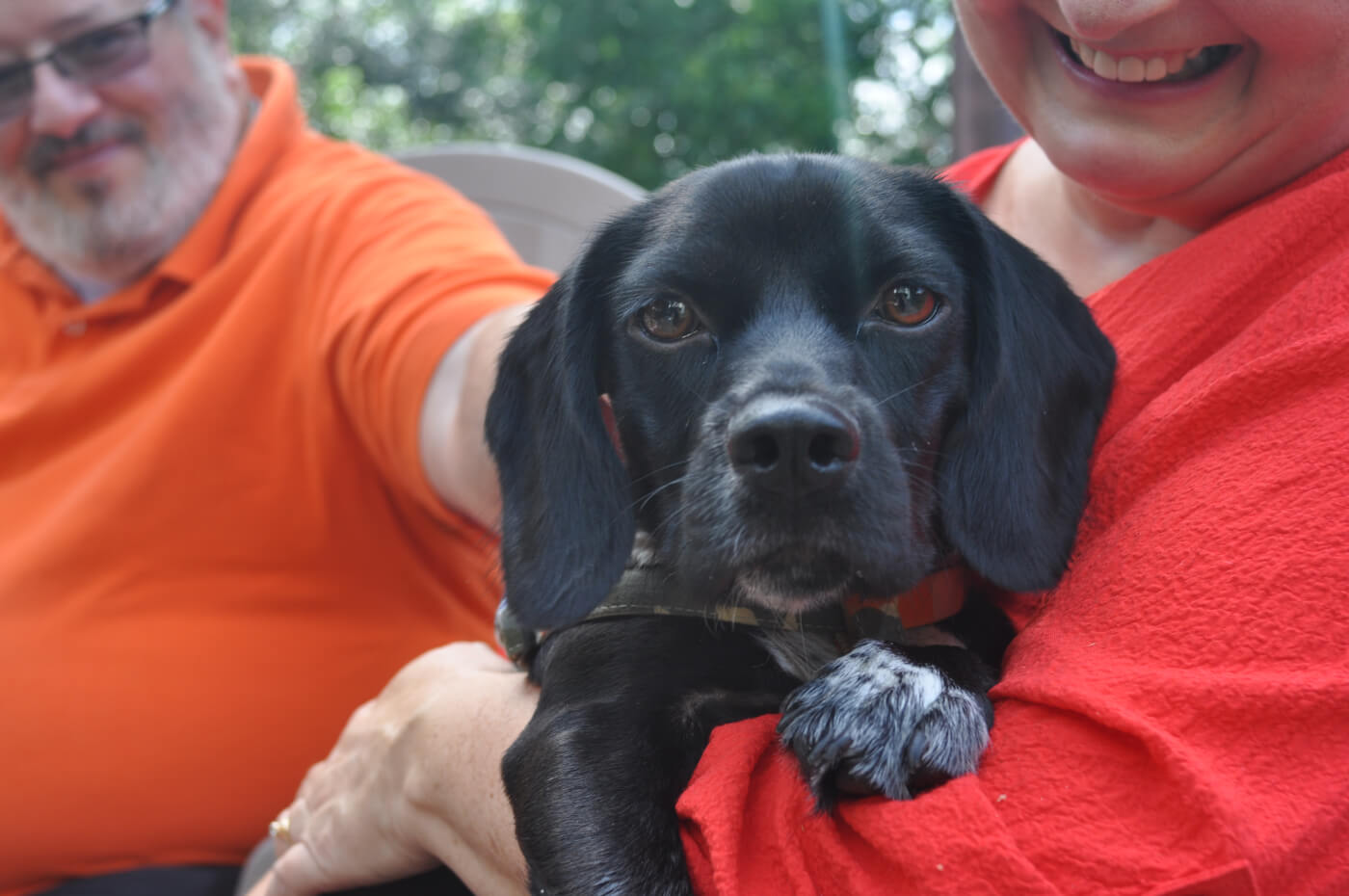
… or bears from dismal roadside zoos …
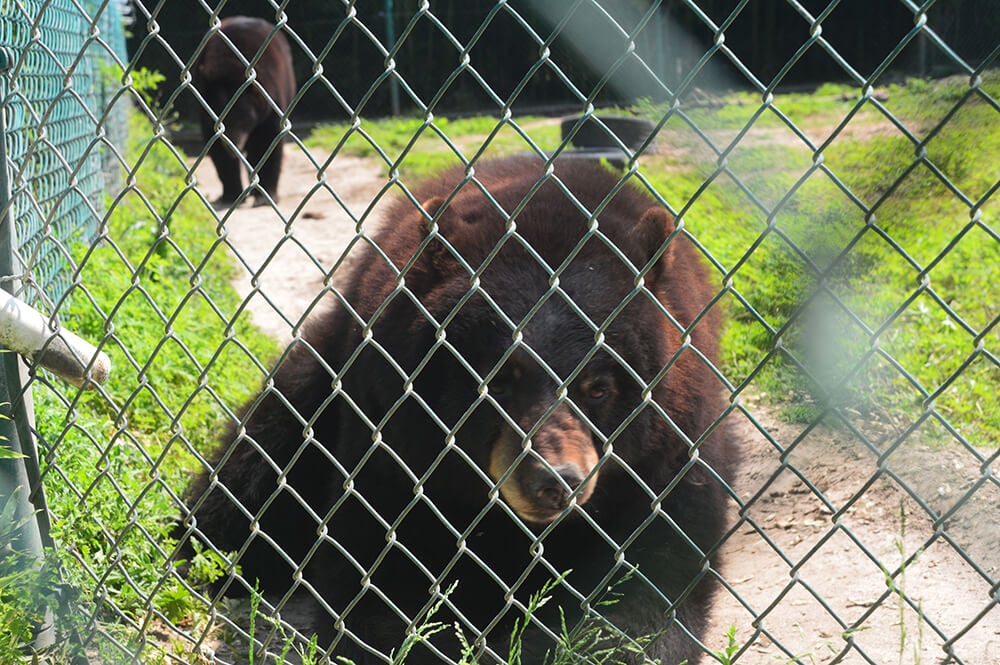
… PETA is only able to make this progress, particularly now, because of the determination of our supporters.
For however long it takes us to get out of the COVID-19 woods, animals will still need our help. Your support and compassion matter greatly to all animals, including those of us at PETA.
Want to do more for animals in your community?
Remind family and friends that when they stock up on supplies, it’s vital that they remember the needs of their animal companions. Encourage them to keep plenty of extra food and medications for animals on hand and to look out for neighbors who may not be able to shop for their animals, as well as donating pet food to food banks. Click below to learn more:

